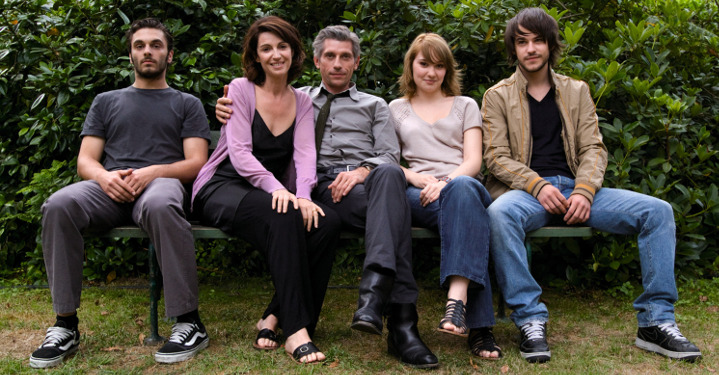French cinema has a storied history that’s at turns glamorous and intimidating, especially for a newbie Francophile or film buff. There may be no other medium that embodies “art imitating life” as well — and that’s what makes film a particularly engaging way to soak up a culture. We’ve all heard the amazing stories of immigrants and refugees who’ve learned a new language in months by watching movies, but as Anglophone expats, we have a hundred ways to sidestep French language and culture: VO in the theaters, Apple TV at home, bilingual schools for our kids.
We’re Netflix junkies ourselves (who isn’t), but what’s the point of living in France if we’re constantly trying to recreate our homeland (and Homeland) experience?
That’s why we’re starting French Film 101 here at Les Lolos. Irish expat and French film maven, Cliodhna Fullam, will be sharing her must-see French flicks. Whether it’s a celebrated writer-director or blockbusters that live up to the hype, French Film 101 is a way to more fully embrace your adopted culture. Knowledge is power and it’s also connection.
One note: We won’t be getting into time-honored classics like Godard, Truffaut, Buñuel (ahem) because A) They’re already so well-known and dissected and B) If we want to know about the culture we’re presently living in, perhaps we should start with the present. Our oldest movie pick goes back to the ‘80s. Let’s see how they did the whole big hair and electric eye shadow look — or maybe that was a purely American thing?
Cliodhna is kicking things off with three modern classics that should be required viewing for any Francophile or expat in France. You can find these films on Netflix and other streaming services or at a good DVD store.

Le Grand Bleu/The Big Blue, 1988
Eric Serra’s lush soundtrack to Le Grand Bleu is just one of the reasons to look at (and listen to) this early film by one of France’s most commercially successful directors, Luc Besson. I recommend watching the long but gorgeous version integrale in one go. As the title suggests, there’s ocean, freediving, love, friendship, lots of water — and dolphins — all in Besson’s signature Cinéma du look (highly slick, stylized and gorgeous visuals).
It’s a beautiful and very funny story about two childhood friends and rivals in and out of the water: A young Jean Reno on form to entertain and a sensitive, magnetic Jean-Marc Barr in love with the sea and Rosanna Arquette. Clearly a labor of love from Besson, it’s not The Fifth Element, but it is a must-see cult film in France. Make sure it’s not the American version because the score and ending were butchered. Skip the dubbed French version, too. Luckily for us, it was filmed in English.

La Haine/Hate, 1995
Hatred breeds hatred. Such is the premise of this hard-hitting, black-and-white film set amidst the tension in a Paris suburb during the ’90s riots. Inspired by real events, Mathieu Kassovitz’ raw and relentless day-and-night in the lives of three friends from les banlieues (low-income, immigrant housing projects) is thought-provoking, compelling and often difficult to watch. The main characters Vinz (Jewish), Saïd (Arab Maghrebi) and Hubert (Afro-French) are each coping with a stressful situation: A police gun goes missing after a riot and an Arab friend is dying in police custody. We helplessly watch the three young men evolve over the course of the day — slowly, surely, inevitably. It is a masterpiece in cinema that retains its freshness and relevance, especially today. Watch with subtitles, the slang is very difficult to understand.

Le Premier Jour du Reste de Ta Vie /The First Day of the Rest of Your Life, 2008
No one likes to admit their family isn’t perfect. But let’s agree that most families are far from ideal. This film didn’t sweep the awards season but with its subtle acting and pace, it’s a poignant look at a French family during key moments in their lives. The movie sensitively puts the spotlight on a single family member at a time, from the ’80s to 2008, though it does teeter on the edge of sentimentality and stereotypes – the wine-connoisseur granddad, the always-smoking father, an empty-nester mother, diametrically opposed brothers, a diary-writing daughter. Perhaps it’s the ease with which we identify and relate to these characters that we are instantly drawn in and empathize. Their stories diverge and converge in ways true to any family, making it one of the most accessible and enjoyable films to come out of France in recent years. I laughed and cried. Out loud. If you saw La Haine, follow up with this lovely gem.




1 Comment
Pingback: 9 Lies You Learned About Paris From The Movies